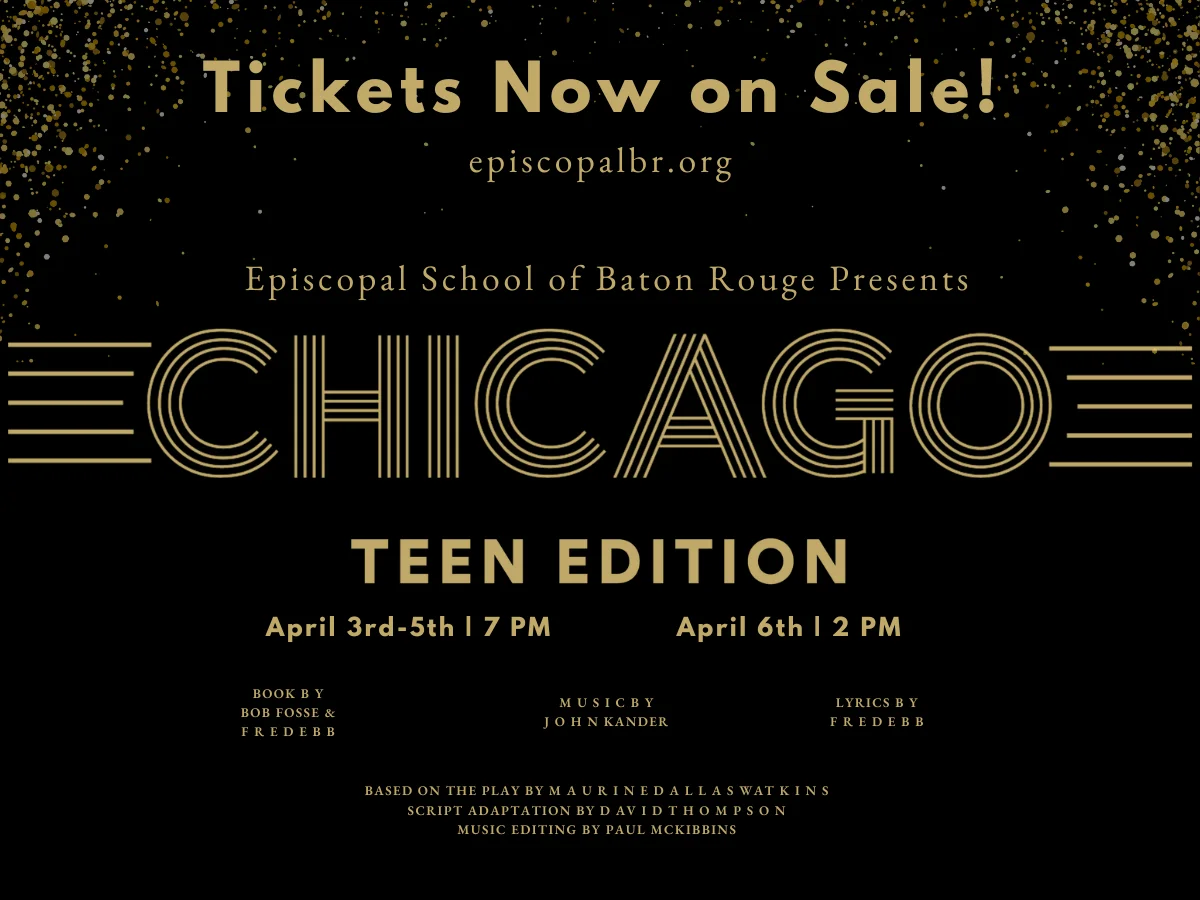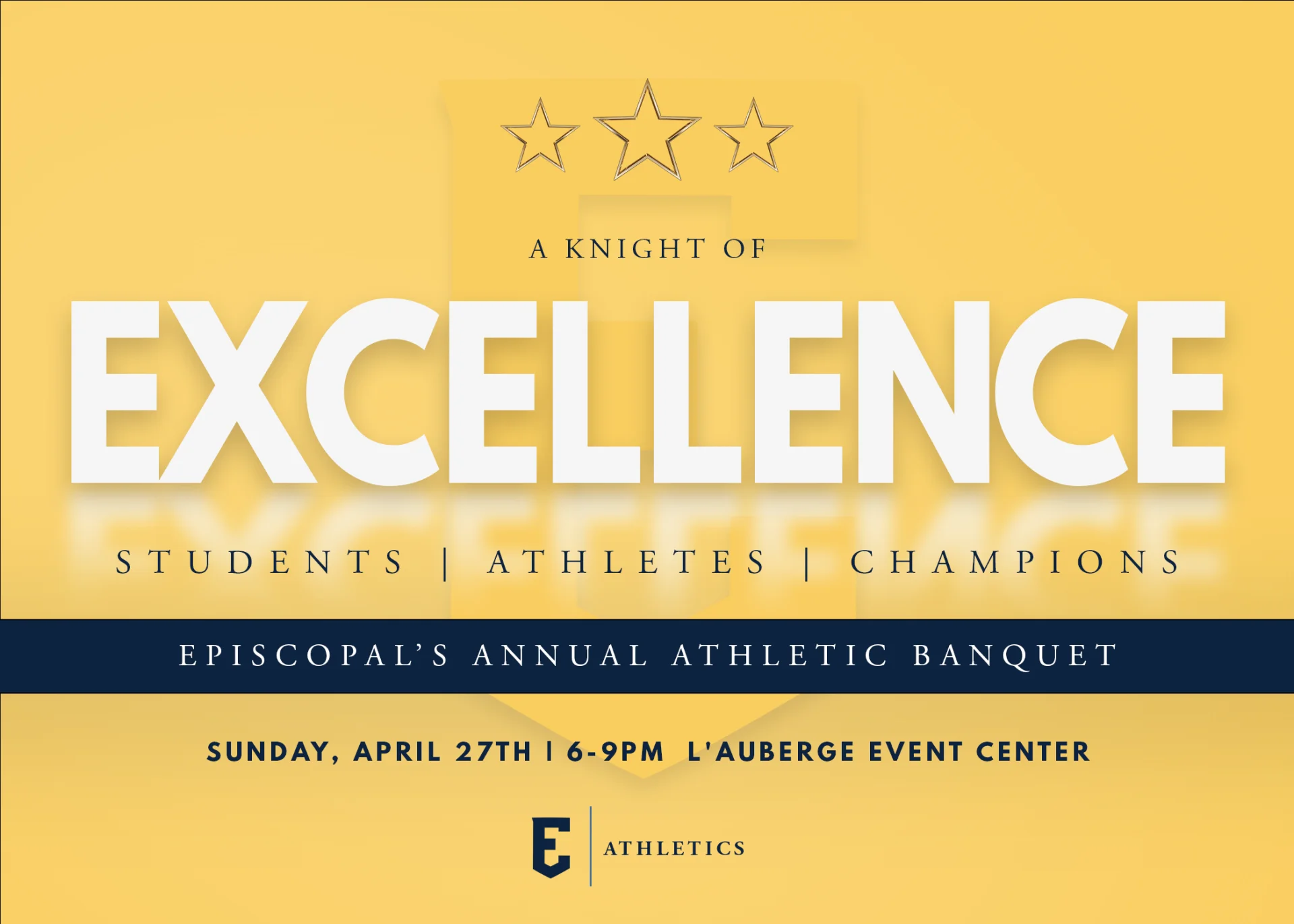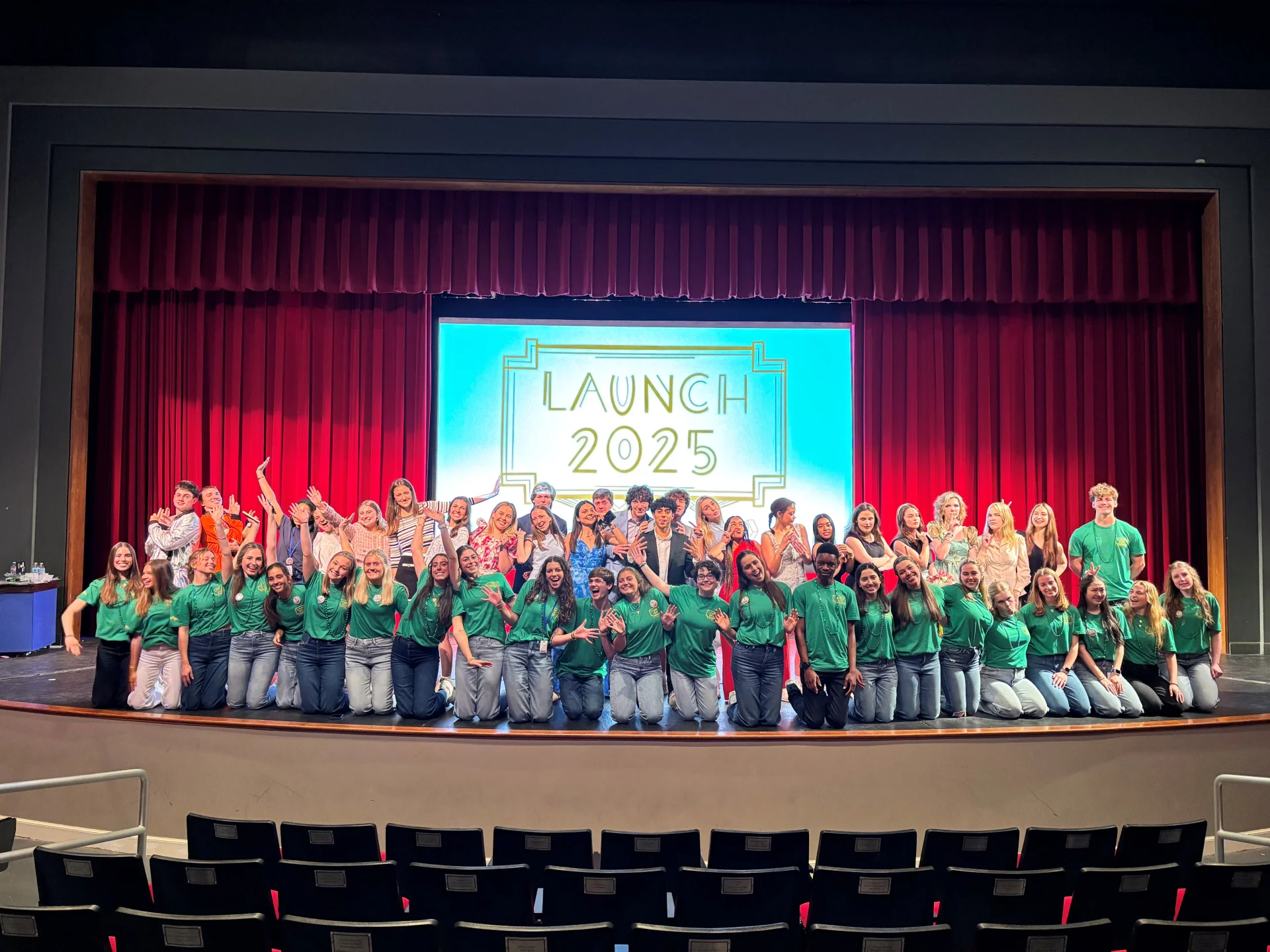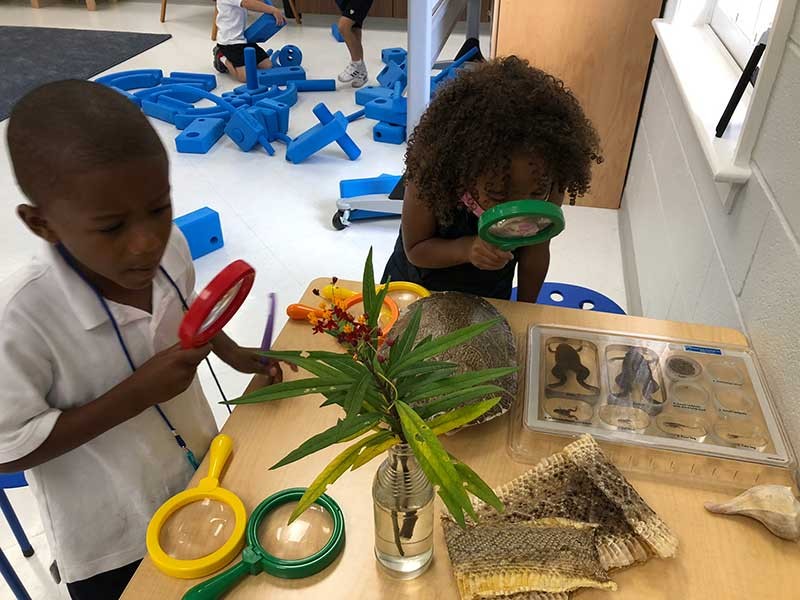- Admission
- Discover Episcopal
- Our Program
- Athletics
- Arts
- Spirituality
- Student Life
- Support Episcopal
- Alumni
- Parent Support
- Knightly News
- Contact Us
- Calendar
- School Store
- Lunch Menu
- Summer Camps
- Knight Under the Stars
- Chicago Tickets
- PowerSchool Notice
« Back
Responsive Classroom: Empowering Students/Boosting Academic Success
August 8th, 2018

Research conducted by the University of Virginia's Curry School of Education shows the responsive classroom approach used by the Episcopal Lower School for more than 10 years now is linked to “higher academic achievement, improved teacher-student interactions and higher quality instruction.” According to information from the Center for Responsive Schools, Inc. the Curry School's three-year study also found that the responsive classroom approach to teaching is a predictor of gains in student math and reading achievement and that teachers’ use of the approach is associated with a classroom that is more emotionally supportive and organized.
Additional research from the Columbia University Teaching College also supports the responsive classroom approach. Center for Responsive Schools information shows that researchers evaluated the economic benefits of social-emotional learning (SEL) and found that improving SEL shows measurable benefits that exceed the costs.
What is the responsive classroom approach?
According to the Center for Responsive Schools, the approach “is a way of teaching that creates a safe, challenging, and joyful classroom and schoolwide climate for all students.” Basically, the responsive classroom approach is a classroom management philosophy that helps establish a community of empowered students who understand fully the expectations and behaviors required of them and the results of those expectations and behaviors.
Lower School teachers Renee Crousillac and Kelly Dorris have both received advanced training in the responsive classroom approach. “In my 28 years of teaching, I have never used such an amazing approach. It works! It eliminates a lot of behavior issues and allows for more meaningful teaching time,” says Crousillac. Dorris says the approach begins with the first bell on the first day of school. “Teachers take time to develop a sense of community at the beginning of the year so that at the end of the year the class is a well-oiled machine,” she says.
The responsive classroom approach empowers students. Dorris and Crousillac say at the beginning of the school year each child sets hopes and dreams that serve as academic and personal goals for the year. These goals are then used to establish the classroom rules and guidelines. Teachers also model and demonstrate the behaviors expected of students and use encouraging, positive language to remind students along the way. “Show me what a good listener looks like” and “remind me of how we are going to move to the cafeteria” are examples of the types of phrases commonly used.
The efforts put into establishing a classroom community early on, pay off in numerous ways throughout the year. Dorris says eventually teachers are able to work with small groups while other students work separately on projects of their choice without disturbing the room. “Everyone knows their purpose and what they’re doing in the room,” she says.
What can you expect from a responsive classroom community?
Students who are learning in a responsive classroom community greet each other daily as well as anyone who enters their room. In the video above, third grade teacher Amy Arceneaux leads a classroom morning meeting in which she shows students how to greet each other appropriately. In morning meetings students also share books and anecdotes and participate in a short daily activity centered on the theme of the first lesson. Responsive classroom teachers begin each day by posting a daily message for students to see upon entering the classroom. The message outlines what to expect from the day.
The responsive classroom approach has proven to be a perfect fit for Episcopal because of the school’s commitment to nurturing and developing the whole child- spiritually, intellectually, morally, physically and artistically. Dorris says the approach is also a great fit for project-based learning and experiential learning opportunities. In addition, the approach engages parents and families, including them in the classroom community and the larger campus culture as everyone works together with common goals and a commitment to learning.
The standards established in Lower School through this approach resonate throughout the Middle and Upper School divisions. “I am often proud of how Episcopal students communicate well with visitors to our campus- both adults and new students. Many are able to model appropriate eye contact, tone of voice, and instinctively know to greet a visiting adult or student with a handshake and welcome. Where does this come from? These skills are taught at a young age in our Lower School using the responsive classroom method,” says Middle School Counselor Alicia Kelly. Kelly says this type of learning continues in Middle School with a different name. “This summer, the Middle School teachers participated in a workshop on Social Emotional Learning (SEL) that will complement the positive work the Lower School is doing. This training will enhance and supplement a week-long training called ‘Developmental Designs’ that a portion of our current Middle School faculty attended several years ago. As educators, it’s not only our role to teach students our curriculum, but help them grow into productive young adults with purposeful lives. We are fortunate to work in a school that focuses on the whole child.”
This June, Episcopal hosted a responsive classroom training workshop that was attended by educators from across the country. New and returning Episcopal educators were able to take advantage of this professional development opportunity while connecting with teachers from other schools. Dorris says training a range of teachers in this approach helps keep the message consistent across the division so that students, families and teachers know what to expect regardless of their classroom assignment.
Choice. Trust. Community. These are words you may think of to describe a responsive classroom feeling. One benefit of having such a positive environment is that it means more time can be spent on learning, discovering and exploring the world. Such an environment sets a solid foundation for a range of academic possibilities that later express themselves in test scores, GPA’s and college acceptances.
The Episcopal School of Baton Rouge 2025-2026 application is now available! For more information on the application process, to schedule a tour, or learn more about the private school, contact us at [email protected] or 225-755-2685.
Posted in the categories All, Lower School.
Other articles to consider
 Mar27Episcopal Presents "Chicago: Teen Edition"
Mar27Episcopal Presents "Chicago: Teen Edition"Don’t miss the Upper School spring musical “Chicago: Teen Edition”! With dancing, singing, a true crime theme and a 12-piece professional orchestra, this PG-13 presentation is sure to impress. Shows run April 3-6—get your tickets today!
See Details Mar27Episcopal Announces "The Knight of Excellence" Athletic Banquet
Mar27Episcopal Announces "The Knight of Excellence" Athletic BanquetCelebrate Episcopal's top athletes at the Knight of Excellence on April 27th! Join us for an inspiring evening of awards, recognition and community.
See Details Mar26College Announcements 3.28.25
Mar26College Announcements 3.28.25Please join us in congratulating members of the Class of 2025 as they announce their college enrollment decisions.
See Details Mar25A Community of Learners Takes the Stage at LAUNCH Day 2025
Mar25A Community of Learners Takes the Stage at LAUNCH Day 2025LAUNCH Day 2025 celebrated student-driven research, innovation and a close-knit community of learners. See how seniors showcased their hard work, creativity and big ideas on stage.
See Details
Categories
- All
- Admission
- Athletics
- College Bound 2019
- College Bound 2020
- College Bound 2021
- College Bound 2022
- College Bound 2023
- College Bound 2024
- College Bound 2025
- Counselors Corner
- Episcopal Alumni
- Giving
- Head Of School
- Lower School
- Middle School
- Spirituality And Service
- Student Work
- The Teachers' Lounge
- Upper School
- Visual And Performing Arts
Recent Articles
- 03/27/25Episcopal Presents "Chicago: Teen Edition"
- 03/27/25Episcopal Announces "The Knight of Excellence" Athletic Banquet
- 03/26/25College Announcements 3.28.25
- 03/25/25A Community of Learners Takes the Stage at LAUNCH Day 2025
- 03/24/25Congratulations to the 2025 Newton Distinguished Faculty Award Honorees!
- 03/21/25College Announcements 3.21.25
- 03/21/25Chase Cresson to Play Football at Morehead State University
- 03/20/25Anna Kate Yale to Compete at Harding University
- 03/13/25From Museums to READBowl: Episcopal Students Embrace the Joy of Learning
- 03/13/25Expanding Academic Support: ARC Fellows Mentor Lower School Students











